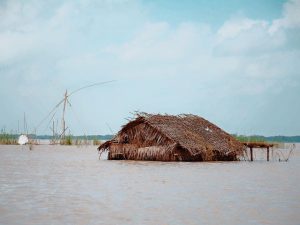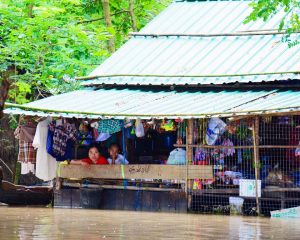Contemplative Practices that we did in class really do makes me wonder and think in depth about the little things that we don’t often see bigger connections to. The reflective aspect of contextualizing course materials with systems thinking can help students like me to explore the bigger picture of how the food we ate today are more than what they are to us consumers. For example, especially when we think of food, we often don’t think of how small little crops such as raisins or coco beans can have a full fledge impact on the lives of farmers on the other side of the production chain. We as consumers in the western world, or the more economically capable nations don’t often think of how a single raisin went through a tremendous life cycle to become what is it to us. Only when contemplative practice is applied, in terms of watching additional videos and the meditation practice we did with the raisins in our mouth, we are able to think outside the box. The raisin is no longer a single piece of raisin, but it is now a raisin that connects to the world food system in a larger sense and make us consumer be more aware of how the food production processes that goes through in order to produce raisins.
Doing such contemplative practices really gave me surprising connection of class materials such as Michael Pollan’s or Michael Carolan’s studies on how the more affluent nations around the world have an advantage over the global south in forms of unfair trade practices or agricultural production. I can see surprising connections to myself, more of to Myanmar, my home country which is just emerging out from 50 years of military junta rule. When we learn about things like how Cuba becomes self-sufficient in farming due to the downfall of the Soviet Union helped them be independent to the agricultural industrialization that is happening around the world. I can say the same for Myanmar too, back when Myanmar’s economy is cut off from the rest of the world, so are it’s farming practices, due to the first hand experiences I had at my family’s farm. Over time though, once Myanmar started to experience more economic opening as the military junta slowly retrieved their powers, crops that were once my uncle are free to plant such as “Shan Corn”, the indigenous corn in Shan State Myanmar, today is all replaced with Cash Crops Corn that are GMO from Thailand. This in connection to the Saudi-Arabi’s Bubble that we talked about in class and the contemplative practices, really do make me see the world food in a system, especially when I am living in a country where all the negative un-intended consequences of agriculture industrialization is coming. So how can a nation such as Myanmar, not face the same situation as Saudi-Arabia in terms of not becoming self-sufficient in feeding it’s own population and how can Myanmar as a developing nation protect its local farming practices and not get tarnished by the food dependency theories that Pollan or Carolan’s warned in their books.
The contemplative practices even pushed me further to connect how the climate refugees in the future are going to be imperative for various nations to solved. So in this sense, the immigration policies that we have of today, also in Myanmar, with the Rohingya exodus into the Bangladeshi border outcomes will be of great importance for developing nations to figure out how to deal with climate refugees. This issue hits me hard at most because I have already seen what damaging floods can do to various people living near the river delta. A year ago, Myanmar, in Mandalay region faced a huge crisis in terms of the Ayarwaddy River overflowing due to the effects of climate change. These farmers are those that lived near the Ayarwaddy River delta, who still using traditional farming practices when compared to more developed nations. I got a chance to visit these flooded locations in Mandalay and here are some pictures that I took along my trip. Never know that the contemplative practices would lead me link how the world food production have an impact on the floods happening in my home country.


(more pictures if you want to take a look at my Photo awareness project for the flood, https://www.facebook.com/media/set/?set=a.1668515313378213.1073741831.1409597535936660&type=1&l=7cd3ad90c3)
Only when I am able to contemplatively think in this term, I was able to see these connection of how the world food system is interlinked to the way we produce food and how that is harming our environment in detrimental ways. It might not be intended, as Professor said in class but the un-intended consequences are the result of such course of agriculture production the world has worked towards to.

Hi Jack:
This was a powerful post because of the first-hand effects you have witnessed in your country. The photos you shared provoked a strong emotional reaction because they were photographed by a student in my class rather than a world traveler photojournalist. Thank you for sharing your story because throughout the lecture its been a challenge to connect the lecture material with the faces and lives of real individuals across the globe.
One of the other important points you made was concerning the impact of simple ingredients. The industrialization that goes behind mass producing small and simple ingredients is appalling to me. You pointed out these ingredients can have severe negative impacts on the environment. One of the tendencies that I’ve had in this class is only reflecting on how this affects me as individual and my personal food consumption. Your post was enlightening because it was a positive reminder for me as a student to think beyond individual impact.
https://courses.washington.edu/ps385s18/2018/05/07/contemplative-practices-to-developing-nations/